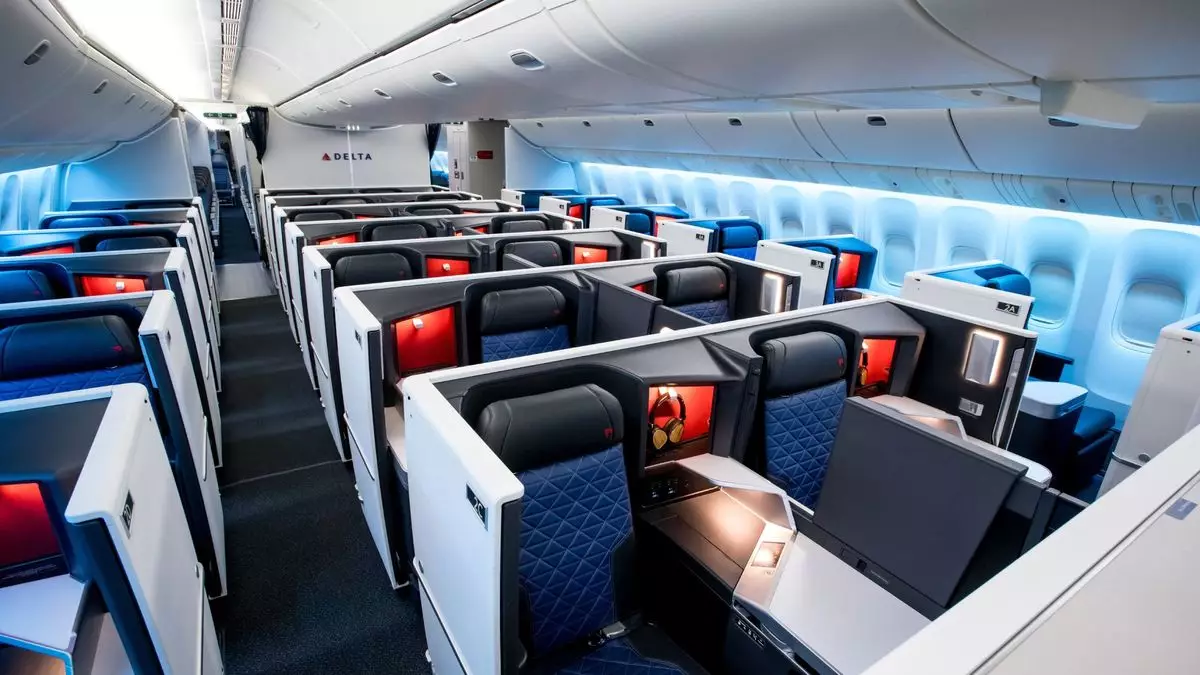Delta Air Lines is boldly reshaping its approach to premium cabin experiences by diversifying its fare offerings. Under the leadership of President Glen Hauenstein, the airline emphasizes that providing passengers with more tailored choices is the key to maintaining its competitive edge. Rather than a one-size-fits-all model, Delta is working toward a granular segmentation of its seats, reminiscent of the recent restructuring in its main cabin products. This strategic move is not merely about pricing; it’s about delivering personalized value that appeals to a broader spectrum of travelers—from the occasional flyer seeking affordability to the premium customer craving exclusivity.
The airline’s pivot towards unbundling services—potentially separating domestic First Class and international Business Class—signals a shift toward greater transparency and customization. Though specifics remain under wraps, it’s evident Delta aims to give customers control over what they pay for, enhancing both flexibility and perceived value. This approach challenges traditional fare bundling, positioning Delta as a pioneer in redefining premium service levels. Such a shift isn’t just marketing fluff; it is a calculated response to evolving customer expectations, especially amid fierce competition and an increasingly discerning travel market.
Redefining the Premium Cabin Experience
Delta’s recent move to rename and clearly distinguish its main cabin products—Main Basic, Main Classic, and Main Extra—illustrates a deliberate effort to demystify options and promote clarity. These categories cover whether travelers can select seats early, change or refund their tickets, and priority boarding—factors that significantly influence the flying experience. The emphasis on transparency aligns with broader industry trends, but Delta’s specific approach aims to make sure customers feel empowered and well-informed.
Building on this, Delta’s logic appears to be that the strategies applied to the main cabin will serve as a template for its premium sections. If executed well, this segmentation could lead to more meaningful choices in the international and domestic premium spaces—be it new fare options or flexible services. The move toward a more segmented structure suggests Delta sees value in catering dynamically to passenger preferences rather than offering monolithic product tiers. Such a strategy could revolutionize customer expectations, transforming premium cabins from fixed, luxury-only experiences into customizable, choice-driven services.
Financial Health Supports Bold Innovation
Delta’s recent earnings report paints an optimistic picture that reinforces its bold strategy. With a net income of $2.1 billion for the second quarter and a positive full-year forecast, the airline has enough financial muscle to experiment with new offerings. The stabilization of demand following a turbulent winter, coupled with a modest capacity adjustment, indicates that Delta is balancing supply and demand effectively.
The company’s confidence in projecting an operating margin of 9% to 11% for Q3 and earnings per share between $5.25 and $6.25 showcases a thriving business that can bankroll innovative service models. Such financial robustness provides Delta with the stability needed to take risks and pay attention to customer-centric innovation. If these strategies improve customer satisfaction and loyalty, the long-term payoff could be substantial, positioning Delta as an industry leader in premium travel customization.
In embracing segmentation and personalized offerings, Delta exemplifies an airline unafraid to challenge the status quo. It recognizes that in today’s competitive landscape, value isn’t solely about price—it’s about experience, choice, and understanding customer needs. As Delta explores these uncharted territories, it signals a future where airline travel is more flexible, transparent, and aligned with individual preferences—something that many travelers have long desired but few airlines have successfully delivered.


Leave a Reply